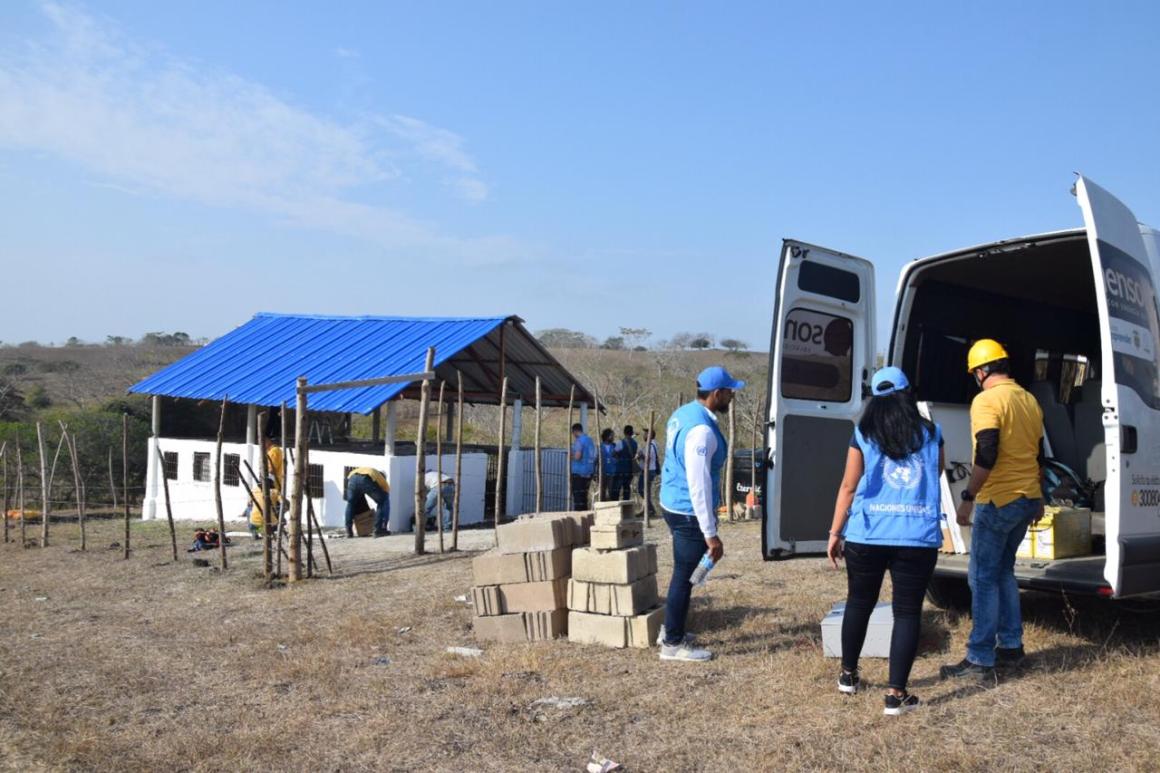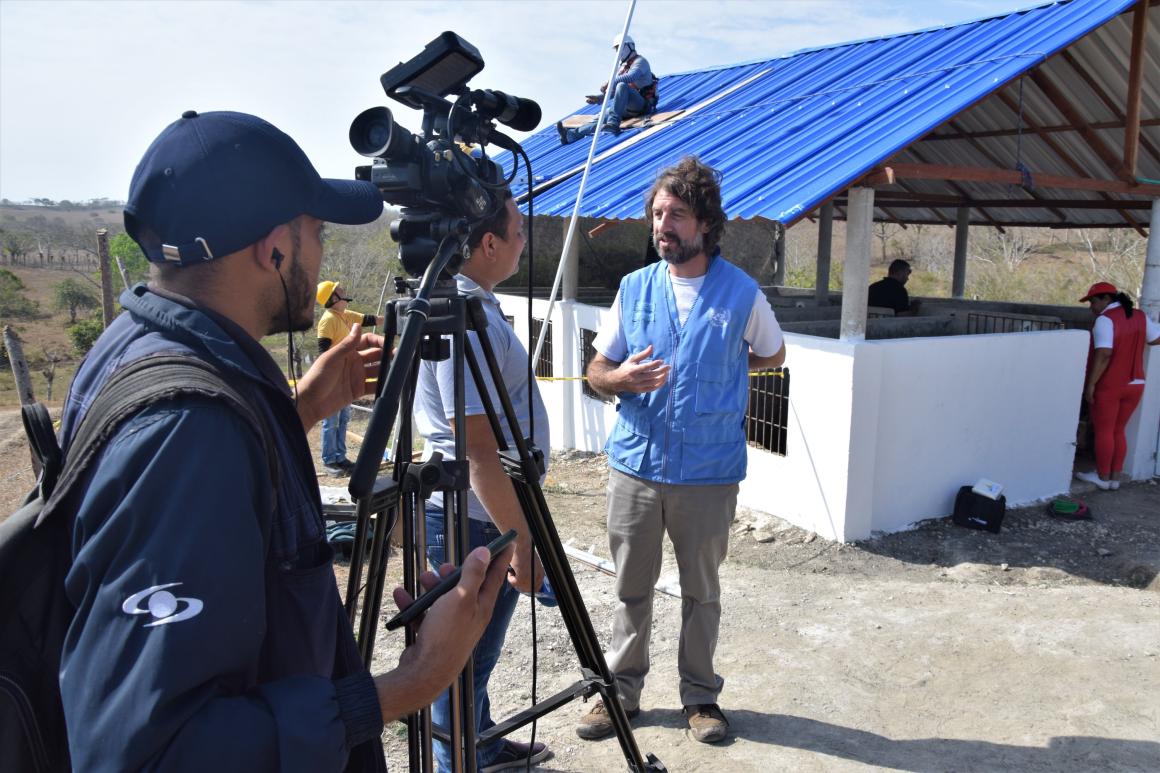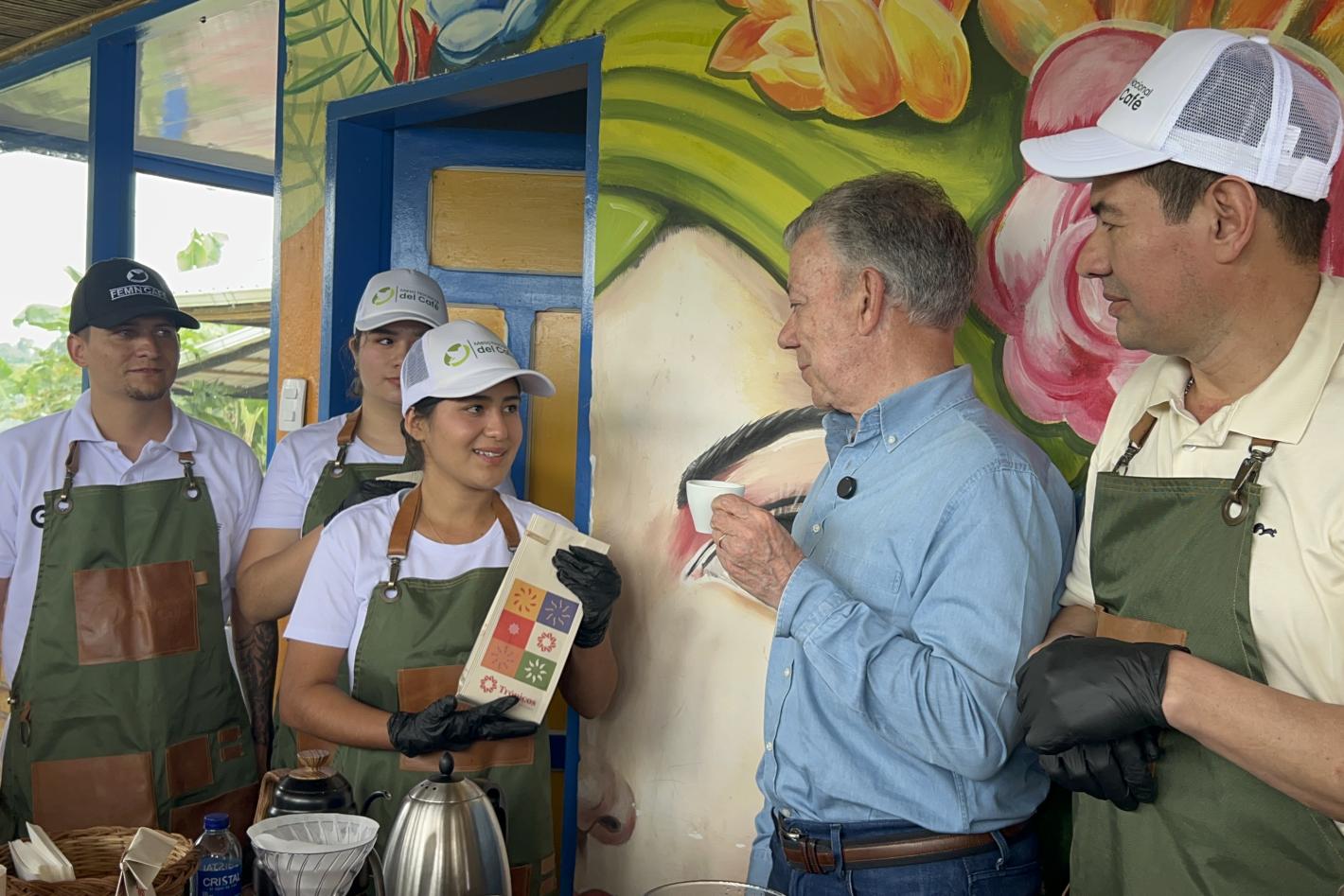They develop productive projects in municipalities such as Ovejas, Chalán, Los Palmitos, Morroa, Sincelejo and Colosó. One of the projects, in which they work hand in hand with the community, is supported by the Verification Mission of the United Nations in Colombia.
This is the first time Edwar Pérez is interviewed by journalists in front of a television camera. It is also the first time Edward´s real name will appear on the news followed by the description: “Former FARC - EP combatant”.
"We are working with the community on a pig farming project to have another way of living, another way to bring up our children and families and to demonstrate that the implementation of the peace agreement is a way to build peace" tells Edwar to the camera of Caracol Television.

He speaks with the naturalness and humility that, according to his relatives, characterize him, but he is still visibly nervous in front of the camera. He imagines, he confessed later, what will his neighbors think when they know that he, who shared all these years as another peasant, belonged to the FARC-EP guerrilla?
Like him, many ex-combatants of the Montes de María sub-region, located between the departments of Sucre and Bolívar, stated that they did not want to be so visible for now, not because there are necessarily direct threats against them, but because they fear that they will be stigmatized and do not feel the same tranquility and security that former combatants feel at living in the Territorial Areas for Training and Reintegration -TARTs.

In Colombia, there are 24 TARTs that shelter most of the former FARC-EP combatants; however, another significant number of them have moved to the new settlements, such as the one in Sucre, with about 200 people living in the municipalities of Ovejas, Chalán, Los Palmitos, Colosó, Morroa and Sincelejo. Most of them already inhabited the territory before the Peace Agreement and were part of the FARC-EP as militiamen and as guerrillas of the 35 and 37 fronts under the command of Martín Caballero killed in 2006, thus producing the dismantling of these fronts.
During the laying down of weapons process they went to the Transitional Local Zones for Normalization and Transitory Points (today TATR) of Cesar and La Guajira, where they carried out the process of transit into civilian life, but later returned to their places of origin where they formed these new settlements and where are working on productive projects under the verification of the United Nations Mission.
Although many of the ex-combatants still prefer not to make themselves known to the community, they work quietly on productive projects they hope can create their new livelihoods. In Colombia, the Verification Mission has identified 294 productive initiatives, most of them in the agricultural sector, livestock, textile production, among others.
A project prioritized by the UN Mission
In the rural area of the municipality of Los Palmitos, in Sucre, there is one of these productive projects launched with media presence last January 25 featuring Edwar story. There, a group of 20 people including former FARC - EP combatants and community members, members of the Common Agricultural Cooperative and Peace Formers, undertook a pig farming project prioritized by the United Nations Verification Mission in Colombia, in coordination with the National Service for Learning -SENA, the Agency for Reincorporation and Normalization (ARN) and the Office of the High Commissioner for Peace (OACP).

The project began with four pigs, two males and two females, and 340 hours of training offered by SENA and, later, thanks to the support of the United Nations Verification Mission and UNDP's logistics management the project has been expanded to 22 pigs, tools and supplies for building barns and a Photovoltaic System for energy supply through solar panels.

According to Iñaki Más, Field Officer at the UN Verification Mission, the system of solar panels provided to the project seeks sustainability with clean energy. "There is no electricity here and when the pigs are born and later separate from their mothers, must keep warn. That heat will come from the solar panels, which allow to have a completely technified breeding system, as well as to provide electricity to the farm". The project also includes the use of pig waste to produce organic fertilizer to be used as livestock food and gas production.
According to Iñaki Más, Field Officer of the UN Mission, this solar panel system seeks project’s sustainability with clean energy. "There is no electricity here, and when the pigs are born they are separated from their "mother", so they need warm temperature. That heat will come from the solar panels, which allow to have a completely technified system," he explained. They will also serve to give energy to the farm.

The project also includes the use of pig waste to produce organic fertilizer, which they expect to use as feed for livestock and gas production. This project received support from 22 pigs, the photovoltaic system of solar panels, construction materials to raise the garages and tools.

At the end of the interview, the journalist asked to Edwar: Do you expect to be a great entrepreneur? No, He answered, "I only hope we can earn our living complying the law, that people respect our lives, that they don't stigmatize us and that government entities and the international community such as the UN Mission continue to support us.
Jorge Quintero, Public Information Officer - Regional Office Valledupar
United Nations Verification Mission in Colombia






